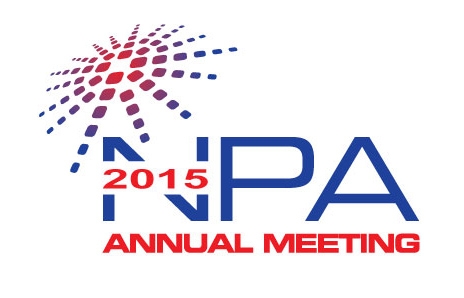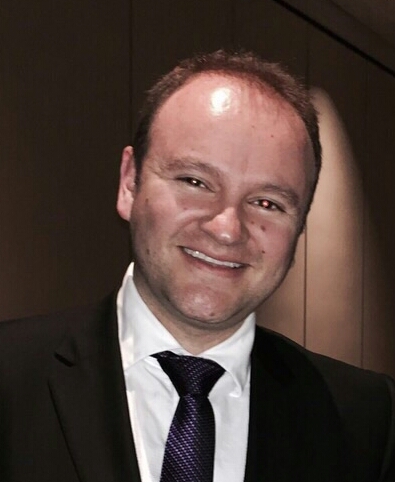 On March 13-15th, two Argonne Postdocs who are active in the PSA attended the 13th Annual Meeting of the National Postdoctoral Association, along with Postdoctoral Program Lead, Tina Henne. The Annual Meeting provides an opportunity for postdocs and program administrators from across the country to share ideas on postdoc training, network, and learn about issues that postdocs and postdoctoral program offices face. More than 375 postdoctoral scholars, postdoctoral administrators, faculty, and company representatives participated in the event. Argonne attendees Giovanni Ramirez Gonzalez (ES) and Andrew Senesi (XSD) will be sharing their experience and take-aways from the meeting in a series of blog posts. First up, Giovanni answers a series of questions of what he learned at NPA 2015.
On March 13-15th, two Argonne Postdocs who are active in the PSA attended the 13th Annual Meeting of the National Postdoctoral Association, along with Postdoctoral Program Lead, Tina Henne. The Annual Meeting provides an opportunity for postdocs and program administrators from across the country to share ideas on postdoc training, network, and learn about issues that postdocs and postdoctoral program offices face. More than 375 postdoctoral scholars, postdoctoral administrators, faculty, and company representatives participated in the event. Argonne attendees Giovanni Ramirez Gonzalez (ES) and Andrew Senesi (XSD) will be sharing their experience and take-aways from the meeting in a series of blog posts. First up, Giovanni answers a series of questions of what he learned at NPA 2015.
- What sessions/topics of workshops did you attend?
I attended the keynote and plenaries. I also attended the following sessions:
- Career Connections
- How to avoid self-sabotage and win at salary negotiations
- Developing your communications strategy
- Scientists are Leaders
- What was the greatest benefit of attending the meeting?
The greatest benefit that I received attending the NPA annual meeting was the possibility of seeing the big picture and understanding the actual situation of the postdoctoral scientists in US. I had the opportunity to learn about the possibilities and difficulties in obtaining a job in the future as a young scientist, and the possible strategies that we should follow in order to be prepared.
- What are some lessons you learned from the workshops that would be beneficial for your fellow postdocs?
- I learned the importance of having a communication strategy, especially as it pertains to resumes, networking, interviews, etc. In general, graduate school does not provide tools to learn how to sell your ideas, collaborate with people of other institutions or how to prepare for an interview.
- I learned that there are many pathways to follow in order to be successful after the postdoctoral appointment. We met some people that earned a PhD in one discipline and are now successful at something totally different. We also met with recruiters from industry and learned about all the possibilities that a PhD can have in the corporative world.
- I learned the importance of knowing how to negotiate salary and benefits when you are applying for a job. You should investigate salary ranges, the possible benefits and have in mind what other things you want to receive (for example pay of technical societies fees, conferences, etc.) I did my own research on this last point and learned that if you are applying for a faculty position, you should know how to negotiate a startup package. The startup package is the amount of money that the university is going to bring you in order to initiate your research and will help you be successful during your initial years in the tenure-track.
- Here are some very interesting websites I found:
o https://career.ucsf.edu/sites/career.ucsf.edu/files/PDF/ResearcherNegotiatingStartupPackage.pdf
o https://aas.org/jobs/right-start-package-beginning-science-professors
- There was also the impression that graduate students are convinced by the professors that the environment in the industry is not appropriate to do research, or is not real science, etc. This is one reason why most postdocs in universities are searching for faculty positions without have the opportunity to think about other options.
- What are the concerns or issues faced by postdocs at other organizations?
- Mentoring Program. In other places, postdocs may not have a mentor, and the supervisor is not mentoring them as well. In some institutions there are a few mentors for hundreds of students. We are doing a good job at Argonne in that regard.
- Salaries. Average salary that I saw during the conference is between 40,000 and 40,000 USD, and some don’t have Medical Insurance. This is another area where Argonne excels.
- Postdoctoral scientists in other institutions are treated as students. Sometimes the institutions consider the postdoctoral appointment as training only. I think that at Argonne we are considered as a temporary employees and we are treated with respect.
- The postdoctoral appointees in universities unofficially work 24*7 and unofficially they are teaching students, supervise grad thesis, writing proposals, and more things that in general at Argonne we don’t do.
- In general, postdocs in national laboratories are treated with respect, are offered a good salary and the environment is great. Groups may not be as big as in the universities and we can see our supervisors and obtain mentoring much easier. We have a good mentoring program.
- Did you learn of a program that we should consider starting here?
- We should have activities that allow recruiting.
- We should have more activities that help to improve the communication strategies.
- We should continue with the networking activities.
 Giovanni Ramirez Gonzalez is a Postdoctoral Appointee with the Tribology Research Group in the Energy Systems Division. He received his PhD in Chemical Engineering, with a focus on Materials from Universidad Nacional Autónoma de México in Mexico City. Giovanni’s research aims to solve problems in energy and reduce friction and wear in mechanical systems through developing new coatings and lubricants additives. You can read more about Giovanni and the Tribology group in the Summer 2012 issue of TransForum.
Giovanni Ramirez Gonzalez is a Postdoctoral Appointee with the Tribology Research Group in the Energy Systems Division. He received his PhD in Chemical Engineering, with a focus on Materials from Universidad Nacional Autónoma de México in Mexico City. Giovanni’s research aims to solve problems in energy and reduce friction and wear in mechanical systems through developing new coatings and lubricants additives. You can read more about Giovanni and the Tribology group in the Summer 2012 issue of TransForum.

